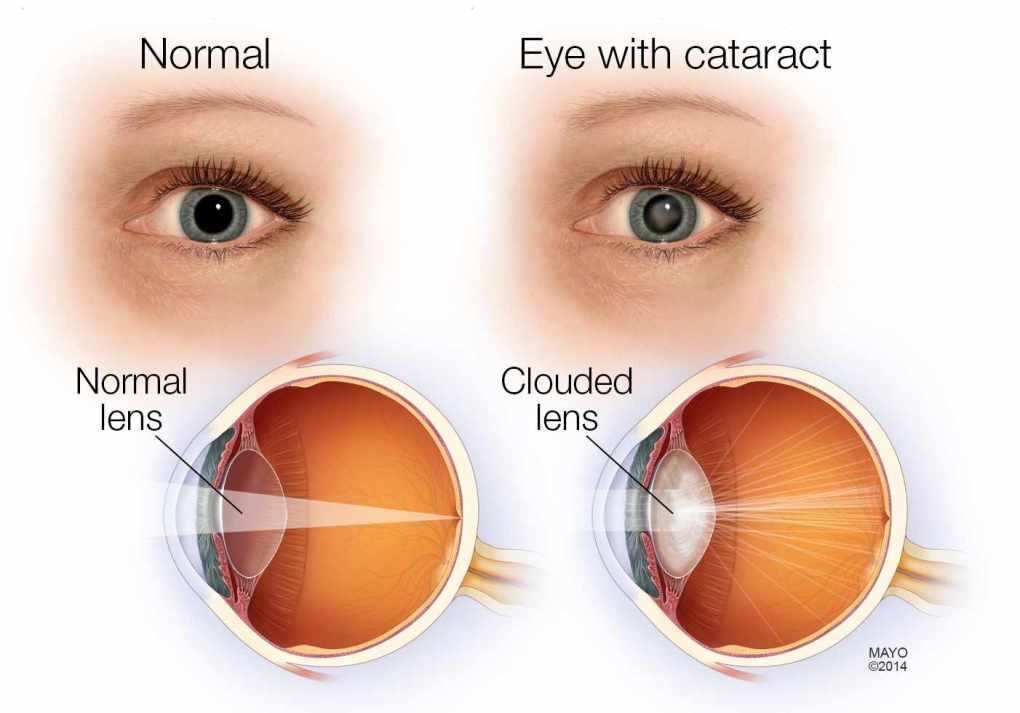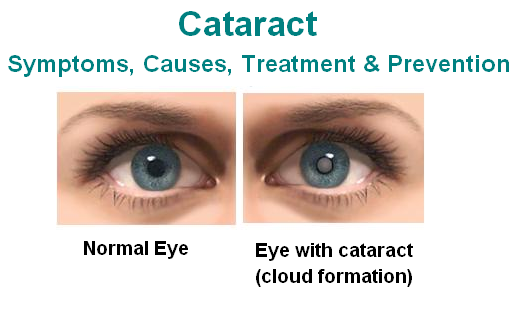Cataract Surgery
What is a Cataract?

A cataract is the clouding of the eye's natural crystalline lens, which is normally clear and transparent. This clouding blocks light rays from passing through to the retina, causing blurred vision. Patients often describe it as looking through a frosted or fogged glass.
Common Symptoms

- Slow, painless, and progressive blurring of vision.
- Increased glare and haloes around lights, especially at night.
- Colors appear faded or yellowish.
- Frequent changes in spectacle prescription.
- Double vision in one eye.
Surgery & Recovery
We use advanced Phacoemulsification technology to remove the cataract through a tiny 2.2 mm micro-incision using ultrasonic energy. No stitches are usually required.
Recovery is rapid: Most patients notice improved vision almost immediately or within 2-3 days and can quickly resume normal activities.
Is it Safe?
Cataract surgery is one of the safest surgeries in the world. Serious complications are extremely rare. Minor issues like temporary dryness or glare typically resolve with medication.
Lens Implant Options (IOLs)
Once the cloudy cataract is removed, it is replaced with an artificial Intraocular Lens (IOL). We offer a wide range of premium lenses to suit your lifestyle:
1. Monofocal IOLs
Provide excellent vision for distance. You will likely still need glasses for reading or computer work.
2. Toric IOLs
Designed specifically for patients with Astigmatism (cylindrical power). They correct corneal irregularity to provide sharper distance vision without heavy glasses.
3. Multifocal & Trifocal IOLs
Designed to provide clear vision at multiple distances: Near, Intermediate, and Far. These lenses greatly reduce or eliminate the need for glasses.
4. EDOF (Extended Depth of Focus)
A newer technology that provides a continuous range of vision from distance to intermediate (computer/dashboard). They cause less glare/haloes at night compared to some multifocals.
Common Questions about Cataract
The old concept of waiting for a cataract to "ripen" is obsolete. Surgery is recommended as soon as the cataract starts interfering with your daily activities (driving, reading, working).
No. However, months or years later, the capsule holding the lens may become cloudy (PCO). This is easily treated with a 2-minute OPD procedure called YAG Laser Capsulotomy.
Delaying surgery can cause the cataract to become hard, making removal more difficult and increasing recovery time. In extreme cases, it can cause secondary glaucoma or burst, leading to vision loss.
